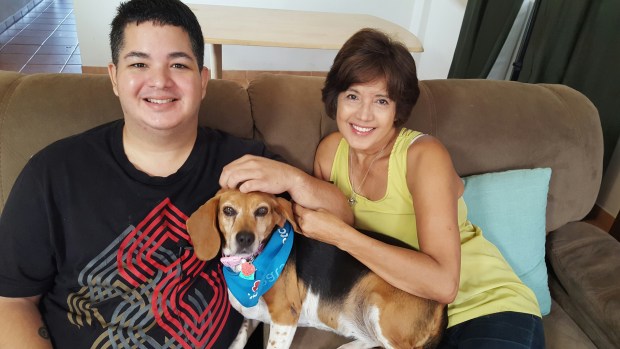We are two moms whose only sons, Miguel Carrasquillo and Andrew Flack, lived in Illinois and died young from cancer. Our boys, both in their 30s, made emotional videos pleading to die peacefully from aggressive cancers.
As similar as our two stories are, our sons experienced very different deaths.
One suffered horribly before his death from brain cancer because Illinois did not have the option of medical aid in dying to end his intolerable suffering. The other died gently in California, surrounded by loved ones, because he was able to choose medical aid in dying in that state — again, an end-of-life care option unavailable in Illinois.
Despite the painful memories, we are carrying on our sons’ legacies by urging Illinois lawmakers to pass the recently introduced Illinois End-of-Life Options for Terminally Ill Patients Act. The bill would allow mentally capable, terminally ill adults in Illinois with six months or less to live the option to obtain prescription medication they can decide to take for a peaceful death.
In 2012, at age 31, Miguelito was realizing his dream as a chef at Petterino’s restaurant in Chicago when doctors diagnosed that he had an aggressive brain tumor. Despite Miguel bravely enduring excruciatingly painful treatments, the cancer spread throughout his body. Miguel moved from Chicago back to his family’s home in Puerto Rico. During his last weeks of life, Miguel recorded videos in English and Spanish to urge fellow Latinos to support medical aid-in-dying legislation nationwide.
As a special education teacher in San Diego, California, Andrew, known as Drew, spent his last months of life advocating for medical aid in dying in his home state of Illinois through his blog and podcast. In August 2017, Drew underwent some tests because he was not feeling well. I, his mother, dropped to the floor devastated when Drew called to say it was cancer. For two years, Drew underwent radiation, chemotherapy and surgery, but the painful treatments failed to cure the cancer. In December 2020, doctors told Drew his cancer was terminal, and he decided to stay in California because he wanted to access the state’s End of Life Option Act that allows medical aid in dying.
Different deaths
On Nov. 16, 2022, Drew was in his bedroom with its stunning view of the setting sun, with Jaxson, his roommate’s dog. Everyone commented on the beauty of the skyline, sharing funny stories from Drew’s childhood, and Drew got everyone laughing in turn.
Two hospice nurses mixed the medication with juice and they gave Drew a spoonful of raspberry sorbet to take it with. Within two hours, he fell asleep and passed away peacefully.
Miguel’s morphine patch did nothing to alleviate the severe headaches, back pain and electric shocks throughout his body. He died experiencing extreme suffering. I, his mother, felt as if I failed my sacred duty to protect my only son.
As grieving Catholic mothers, we firmly believe this option at the end of life does not take God’s will away. God is kind and compassionate, and he does not want his children to suffer.
We are proud to continue our late sons’ work. We are grateful that 10 states and the District of Columbia allow terminally ill adults to choose medical aid in dying. More than 70% of Illinois voters support the option, according to a February 2023 survey conducted by Impact Research. We invite you to honor our sons’ memory and listen to the majority of Illinois voters by telling your state lawmakers that it is time for them to allow this gentle dying option.
Will you join us?
Nilsa Centeno lives in Cidra, Puerto Rico. Suzy Flack lives in Naperville.



